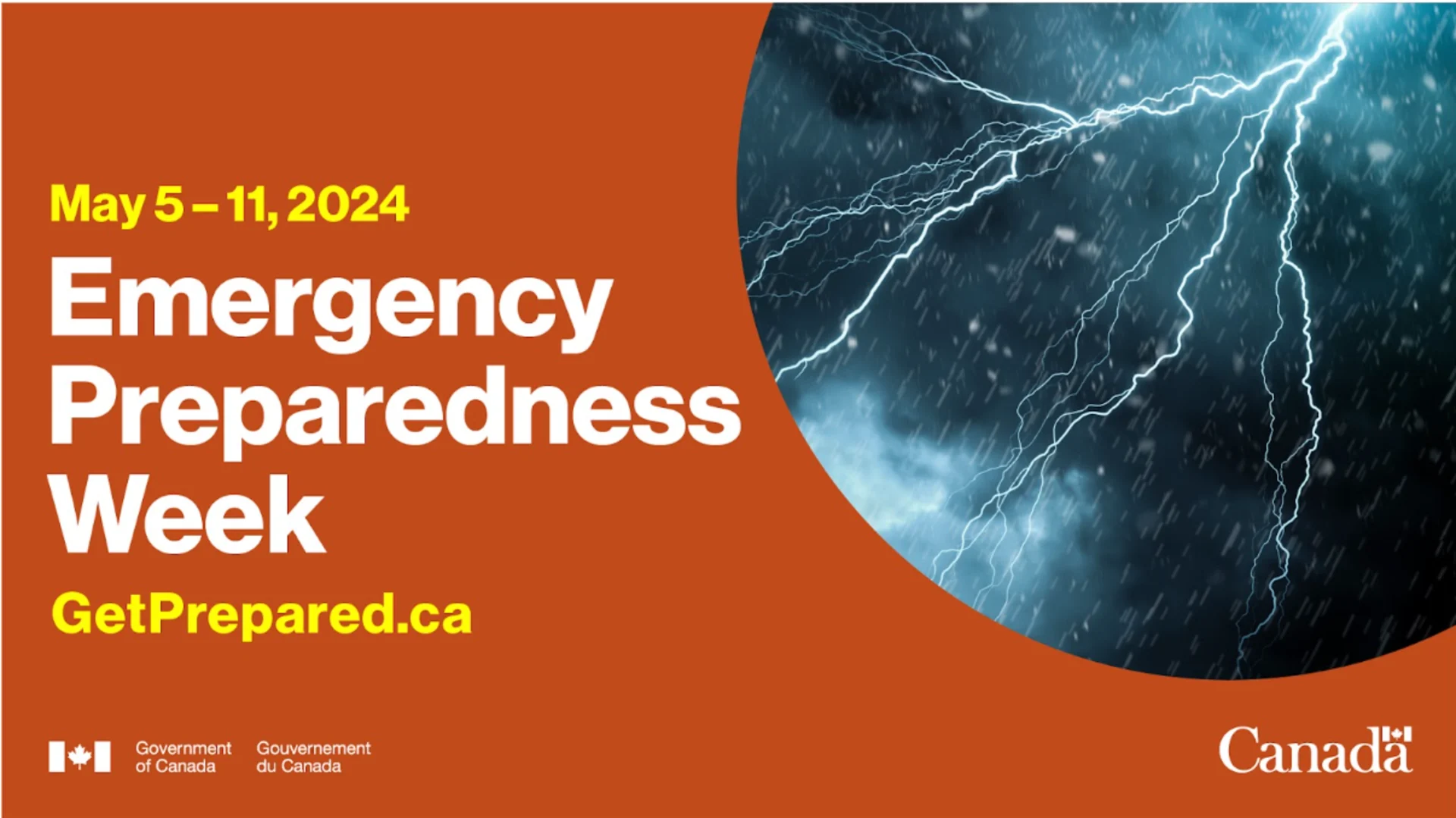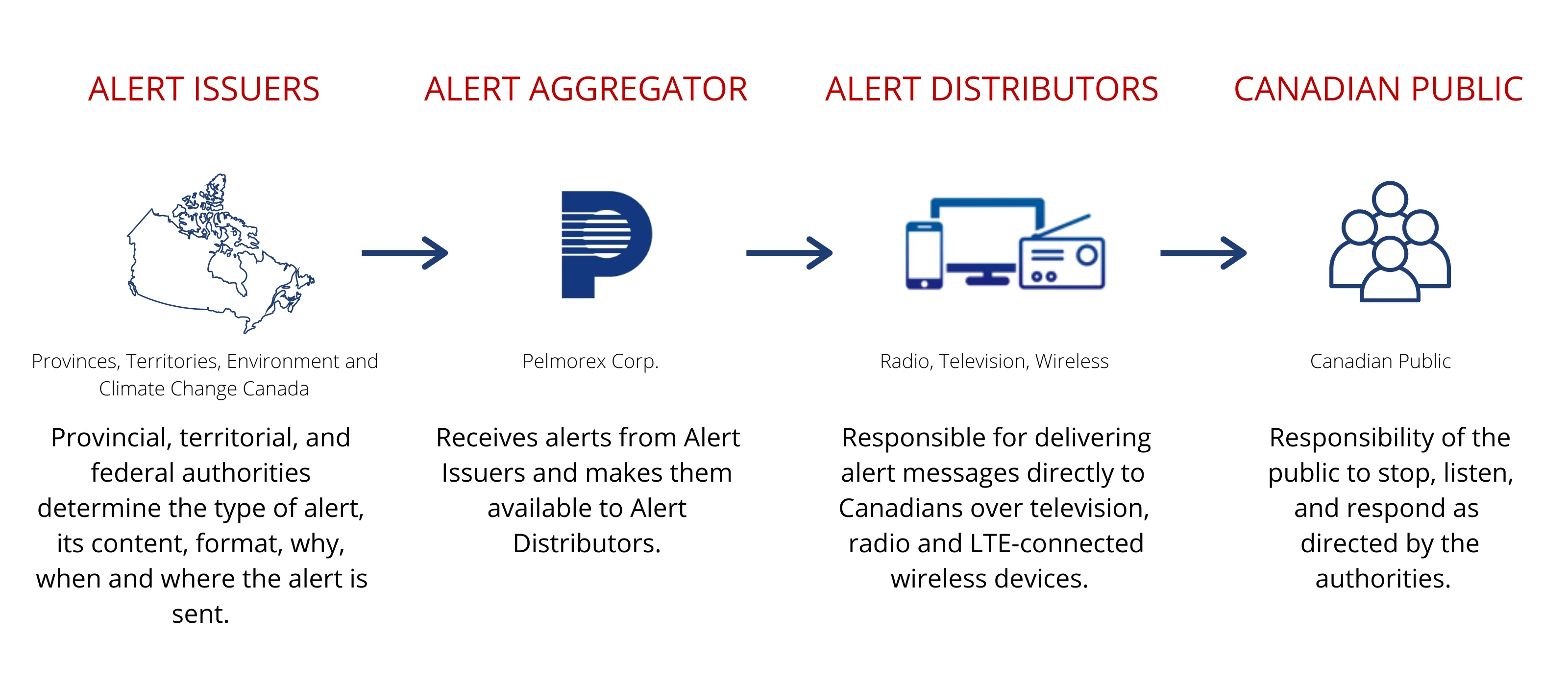Prepare for Emergency Preparedness Week
Emergency Preparedness Week is taking place May 5 to 11 in Canada. Read the article below to learn how to protect yourself, your family and your community during an emergency.
Emergency Preparedness Week (EP Week) is an opportunity for you to take action to ensure you are prepared to protect yourself, your family and your community during an emergency.
This year EP Week is taking place from May 5 to 11, 2024 with the theme of Be Prepared. Know Your Risks. Everyone has a role to play in being prepared for an emergency, that’s why it’s important to understand the risks in your area and learn what actions you can take to protect yourself and your family.
Take a look at the list below to learn how you can best prepare for these different types of emergencies.
Wildfires
In Canada, wildfires or forest fires are common in forested and grassland regions from May to September, which can cause extensive damage and put lives in danger. Follow the links below to learn what to do before, during and after a wildfire occurs in your area.
Before a wildfire: Be sure to protect your home, educate your household and prepare yourself in the event of a wildfire.
During a wildfire: Find out what to do and not to do if a wildfire is approaching your region.
After a wildfire: Stay calm and assess the situation. Remember that you may encounter dangerous situations like downed power lines.
- Read the latest news and tips on what to do if a wildfire ignites near your area
- Watch this video about how to plan for floods, severe storms and wildfires
Floods
Floods are the most frequent natural hazard in Canada. They can occur at any time of the year and are most often caused by heavy rainfall, rapid melting of a thick snow pack, ice jams, or more rarely, the failure of a natural or man-made dam. Follow the links below to learn what to do before, during and after a flood occurs in your area.
Before a flood: Be sure to protect your home, educate your household and prepare yourself in the event of a flood.
During a flood: Find out what to do and not to do if a flood is approaching your region.
After a flood: Restore your home to good order as soon as possible to protect your health and prevent further damage to the house and its contents.
- Read stories from The Weather Network on how to prepare for emergencies
- Read stories from MétéoMédia on how to prepare for emergencies
Extreme Cold
Spending time outdoors in the winter season is good for your health, and can be a lot of fun. But you need to be aware and prepared for Canada’s cold and severe winter weather. In an average year, more Canadians die from exposure to winter cold than from lightning, wind storms and tornadoes combined.
When severe winter weather threatens, our The Weather Network team issues special alerts that notify Canadians in affected areas so that they can take steps to protect themselves and their property from harm.
Reduce your risk of windburn, frostbite and hypothermia by:
- Wearing appropriate clothing
- Paying attention to weather alerts in your area
- Finding shelter and stay moving
- Winterizing your home
- Avoiding alcohol
Earthquakes
In Canada, the coast of British Columbia is the region most at risk from a major earthquake. Other areas prone to earthquakes are the St. Lawrence and Ottawa River valleys, as well as parts of the three northern territories. Follow the links below to learn what to do before, during and after an earthquake occurs in your area.
Alert Ready Test
As part of EP Week, Alert Ready will be distributing a test alert to Canadians in participating provinces and territories on their television, radio and compatible wireless devices on Wednesday, May 8, 2024.
Alert Ready is designed to deliver critical and potentially life-saving alerts to Canadians, including but not limited to tornadoes, flooding, fires and AMBER alerts.
Why is there a test of the Alert Ready System?
Regular testing provides public safety officials with an opportunity to validate and improve the effectiveness and reliability of Alert Ready. Tests ensure that the Alert Ready system operates as intended during an imminent life-threatening situation. Issuing a test alert is at the sole discretion of each provincial and territorial emergency management organization (EMO), however, they are required by the Canadian Radio-television and Telecommunications Commission (CRTC) to perform one test alert per year either in May or November.
Who issues alerts via Alert Ready?
Provincial, territorial and federal public safety authorities are responsible for issuing alerts, however, there is a multi-step process in delivering these alerts to the Canadian public. Each stakeholder plays a unique and vital role in the Alert Ready process.

Find out what time you can expect the test alert to happen in your area in the table below:

The Alert Ready system can help keep you safe. Check the compatibility of your device, to ensure you receive alerts, here.
About Emergency Preparedness Week
Emergency Preparedness Week (EP Week) is a national event supported by Public Safety Canada, working closely with provincial and territorial emergency management organizations, Indigenous organizations, non-governmental organizations and private sector organizations who support activities at the local level. An annual event for over 25 years, it traditionally takes place during the first full week of May.
About Alert Ready
Alert Ready is Canada’s emergency alerting system. Alert Ready delivers critical and potentially life-saving alerts to Canadians through television, radio, and LTE-connected and compatible wireless devices. The Alert Ready system was developed with many partners, including federal, provincial, and territorial emergency management officials, Environment and Climate Change Canada, Pelmorex, the broadcasting industry, and wireless service providers. Together, these partners work to ensure Canadians receive alerts immediately and know when to take action to stay safe.
